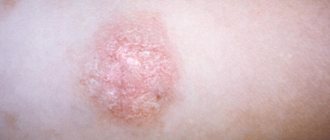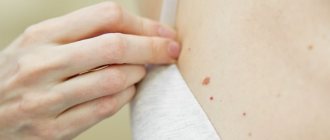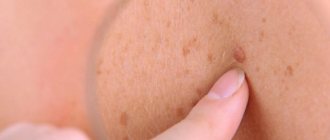Expectant mothers experience particular fear, since if lichen appears during pregnancy, then the young mother bears responsibility for the baby’s health, and of course, she doesn’t want this disease to be passed on to her child. Before you move on to further reading, I would like to point out 2 things that every person needs to know, especially when that person is pregnant.
- When spots appear on the skin, this is not always lichen; sometimes such a neoplasm can be an ordinary allergy.
- If the spot is actually diagnosed as lichen, then you should forget about self-medication and go to the hospital to see a dermatologist. By the way, here you can make an appointment with a doctor online, just select your city and the doctor’s qualifications.
If any swelling, spots, or roughness are found on the body, you should think about the fact that before visiting the doctor, you must take primary protective measures. That is, you cannot eat sweet or bitter foods, do not wet the area where the tumor is located, and under no circumstances should you eat fatty foods.
Ringworm during pregnancy
An accurate diagnosis can only be made by a qualified dermatologist, so do not panic ahead of time.
Is lichen dangerous for a pregnant woman?
There cannot be a direct effect on the fetus, however, something new on the skin always jars the female psyche, and disorders, in turn, are a negative factor in the development of the fetus. If treatment for lichen during pregnancy is started on time, then there is no danger, but treatment should be approached with caution and remember that you cannot self-medicate. There are a number of drugs that can cause harm to the health of the fetus, so it is better to purchase such drugs as prescribed by a doctor. When a fungus or other infection appears along with lichen, the situation is more complicated. Diseases can interact with each other and cause enormous harm. Treatment of ringworm in pregnant women is always a successful event, and if you do not want to disturb this statistics, then you should act strictly according to the doctor's recommendations and take the medications recommended by your doctor! Despite the colorful abundance of photographs of deprivation in pregnant women, it is not worth making hasty conclusions based on just one photograph. Of course, we will provide some photos so that you can understand what this disease looks like, but this does not mean that you need to run to the pharmacy yourself and buy all the medicines - you need to go to the doctor. Almost all skin diseases occur on the body when our immunity is weakened, and lichen acts in the same way. During pregnancy, it is especially difficult for women to take care of their health, because due to a decrease in immunity, hormonal levels also change.
Treatment
Therapeutic tactics are determined by the type of lichen and the severity of the disease. Pregnancy imposes obvious restrictions on the use of certain medications, especially in the first trimester, which makes choosing medications a rather difficult task.
For rosacea, it is recommended to follow a diet with limited hot and spicy foods, limit prolonged contact of the affected areas with water (only short showers are allowed), and eliminate mechanical irritation (washing, wearing synthetic clothing), which contribute to the spread of infection. External treatment with a zinc-water mixture is allowed.
Lichen versicolor and microsporia are treated with sulfur-salicylic ointment, the lesions are lubricated with iodine solution. Among external antifungal agents, it is possible to use terbinafine and clotrimazole, but only in cases where the potential benefit to the mother outweighs the risk to the fetus. Antimycotics are not prescribed internally.
Foci of herpes zoster are extinguished with alcohol solutions of aniline dyes (brilliant green). Among antiviral agents, it is possible to use ointment with acyclovir, but only with the permission of the attending physician. Systemic antiherpetic therapy is carried out with great caution.
Shingles during pregnancy
This type of lichen is considered the most dangerous during pregnancy. Shingles during pregnancy can cause a lot of inconvenience for a young mother, as pain occurs in the hypochondrium. In addition, such a virus arises due to the spread of herpes.
Shingles during pregnancy If the disease overcomes the expectant mother in the 1st trimester, then you should not hesitate and urgently need to go to the clinic, since at this stage there is a possibility of the development of pathologies in the fetus. In the 2nd and 3rd trimesters it is already easier, since the disease is not so terrible, but it can still lead to some inconveniences, such as poor vision in a newborn. Herpes zoster in pregnant women appears suddenly:
- The whole body becomes weak.
- Stinging in areas of future rash.
- Fever.
- The appearance of spots with a diameter of up to 5 centimeters.
After just a day, the disease can spread to the entire body. The peak of the disease is experienced quite painfully, pain occurs when touching pimples, and even contact with clothing sometimes causes pain.
Shingles during pregnancy Shingles during pregnancy does not cause serious harm to the fetus, in most cases it does not affect the baby at all, but for the mother this period can be especially dangerous and painful. At the initial stage, shingles is practically harmless.
Danger for pregnant women
During pregnancy, lichen is transmitted to a woman from an infected person or animal through household contact. In some cases, fungi can enter human skin through hairdressing tools, hygiene products and bedding.
Pityriasis versicolor is considered harmless, so usually treatment for pityriasis versicolor does not cause harm to the fetus. Systemic therapy (in tablets) is used only in advanced form. To minimize the negative impact on the fetus, doctors prescribe local medications that eliminate the external manifestation of symptoms. Full treatment is carried out after childbirth.
Pityriasis rosea during pregnancy
Tinea rosacea is a common disease among expectant mothers, but it is not as dangerous as shingles.
Pityriasis rosea during pregnancy A dozen years ago, studies told us that this disease does not cause serious harm, but many years have passed and new, modern research suggests that pityriasis rosea is dangerous for young mothers.
In some cases, this disease can cause miscarriages or, at best, premature birth. Despite the fact that the 2nd and 3rd trimesters are usually well tolerated, this does not mean that treatment can be postponed, the disease still needs to be treated. First of all, you should contact a specialist, and only then take treatment measures. The most well-known causes of pityriasis rosea in pregnant women are:
- Decreased immunity.
- Toxicosis.
- Hormonal imbalances.
The first spot that appears after infection is popularly called the “maternal plaque”; after its appearance within 24 hours, one should expect replenishment in the form of a rash all over the body.
Maternal plaque As the name suggests, the spots will have a characteristic pink color.
A characteristic feature of this type of lichen is that the spots very rarely appear on visible parts of the body. Due to the fact that itching does not begin to bother you immediately, and in some cases may not appear at all, it can be assumed that the disease will not be diagnosed immediately, which in turn complicates treatment. Treatment of pityriasis rosea during pregnancy is only worthwhile when the course of the disease greatly interferes with the usual way of life. Otherwise, you should wait until childbirth and start treating the mother after the baby is born. Pityriasis rosea during pregnancy What should a expectant mother do to get rid of pityriasis as quickly as possible:
- Categorically avoid woolen items and wear mostly natural, lightweight fabrics.
- Stick to a hypoallergenic diet.
- Strengthen your immune system with healthy eating and walks in the fresh air. But the air must be fresh, so walking along roadways does not count; it is best to breathe forest or sea air (if possible).
- Forget about your nerves and don’t expose yourself to frustration.
- Take a shower exclusively; running water is better than a bath in this situation.
- Avoid perfumes and cosmetics.
It is common among people to treat lichen with calendula tincture, but everyone knows that folk methods have been around for decades, and the old signs and causes of diseases were different, but now everything is different. We recommend not to use traditional medicine and pharmaceutical drugs without consulting a doctor.
Treatment of tinea versicolor in pregnant women
After the diagnosis is made, the doctor decides on the advisability of therapy. In itself, tinea versicolor does not pose any threat to the life and health of a woman or child. While medications for therapy, on the contrary, can cause harm. Therefore, most experts agree that it is better to refuse treatment of tinea versicolor with medications.
The woman is advised to carry the child to term calmly, and then begin treatment with antifungal agents. Moreover, in some cases, further treatment may not be required, since the disease will resolve on its own as soon as the immune system returns to normal.
However, if a woman insists on treatment, she may be given the following recommendations:
- Spend more time in the sun. Ultraviolet rays are harmful to fungus.
- Apply ointments with a low concentration of the main active ingredients to the skin. Thus, Lamisil 1% cream is not contraindicated during pregnancy. When used topically, it does not penetrate the systemic bloodstream and will not harm the child.
- Taking vitamin complexes for pregnant women. If lichen is caused by vitamin deficiency, then this measure is advisable.
- You can lubricate the rashes with vinegar in a concentration of no more than 9%.
- Be sure to change your bed linen every day during treatment, washing it at high temperatures and then ironing it. The same rule applies to underwear and underwear. The washcloth that the woman used before the first signs of illness appeared should be thrown away.
As a rule, these measures are enough to get rid of the problem. It should be remembered that lichen develops against the backdrop of a decrease in the body’s defenses, so a woman should be more attentive to her health, avoid visiting crowded places, and wash her hands more often.
Pregnancy itself is stressful for the body. It should not be aggravated by external factors. You need to maintain calm and peace of mind.
Pityriasis versicolor during pregnancy
Pityriasis versicolor, or as it is also popularly called - multi-colored, manifests itself only when favorable conditions are created. A certain type of fungus lives on our body in sufficient quantities, and when the time comes, it manifests itself.
Tinea versicolor A pregnant woman is especially susceptible to infection, since during the period of bearing a child, a woman’s immunity undergoes changes, and they are not always pleasant. Most often, pityriasis versicolor appears on a moist area of the skin. The only concern that a young mother may have is the cosmetic effect; such lichen is noticeable and therefore spoils the appearance of the skin. Doctors themselves sometimes recommend smearing stains with vinegar, but it is not always effective. In this case, you should use creams whose sediment does not enter the bloodstream, such as Lamisil cream. Pityriasis versicolor In order to protect yourself from re-infection with pityriasis versicolor, you must remember that clothes should always be ironed with a hot iron after washing.
In any case, it is difficult to predict a relapse, since the fungi that cause it live in our body constantly, so lichen may appear at the most inopportune moment.
Ringworm during pregnancy
This disease is sometimes acquired from contact with cats.
Therefore, no matter how much a woman loves animals, during pregnancy she will still have to limit her communication with pets. However, not only cats are carriers of infection. Often even trying on things in a shopping center becomes fatal, and visiting a hairdresser can also cause illness. You can become infected through any household item. Ringworm Although ringworm does not pose a danger to the fetus and the woman herself, the disease should not be neglected, but rather treated in a timely manner. In any case, no matter what dangers await you in life, you should always remember that by strengthening your immunity you can protect yourself from hundreds of diseases that are just waiting for you to weaken. Rate this article:









